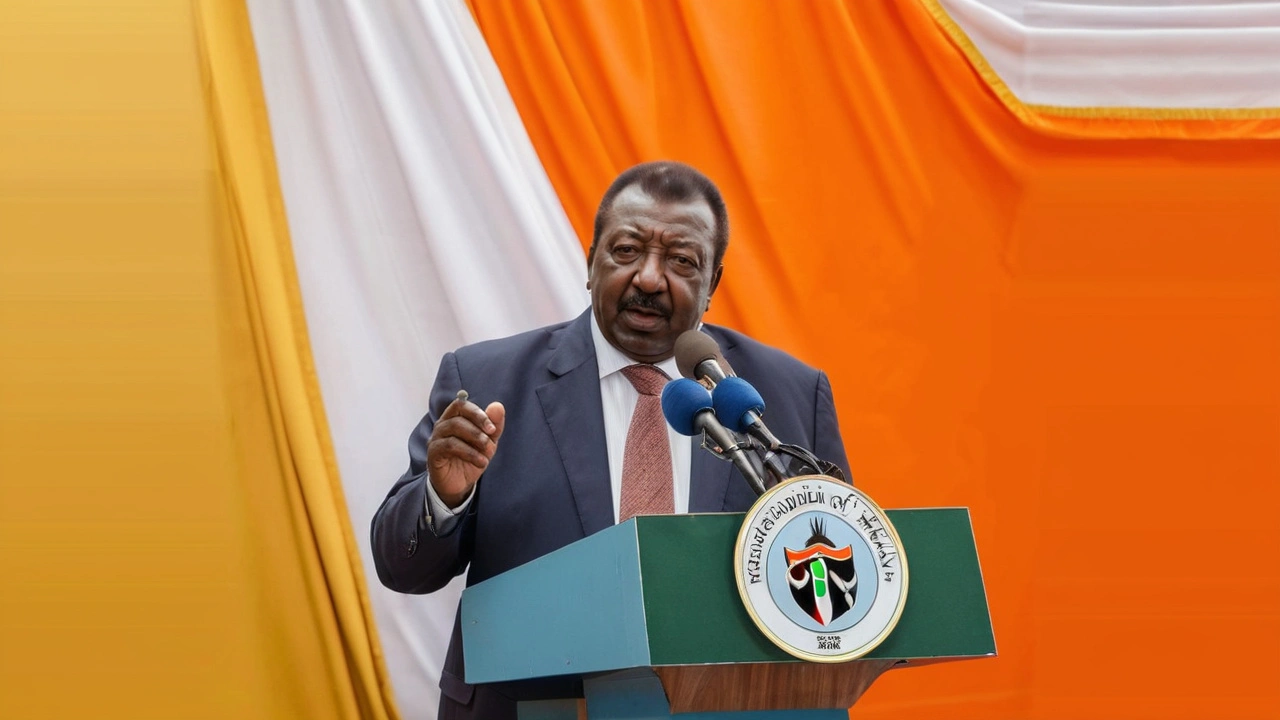JKIA Not for Sale, Clarifies Kenyan Government
Prime Cabinet Secretary Musalia Mudavadi has firmly refuted the swirling rumors about the sale of Jomo Kenyatta International Airport (JKIA). On addressing the National Assembly Budget and Appropriations Committee, Mudavadi emphasized that there are no plans to privatize or sell the airport, which is one of Kenya’s most vital infrastructure assets.
Mudavadi stressed that any decision regarding the sale of such a significant public asset would necessitate thorough public consultations and must receive parliamentary endorsement. “The Jomo Kenyatta International Airport is a public and strategic asset. Any move to sell it would require a comprehensive public process and the approval of our parliament,” he stated unequivocally.
Plans to Modernize and Expand
Instead of a sale, Mudavadi shared the government’s focused plans on modernizing the airport and building a new terminal to better accommodate the increasing passenger and cargo traffic. The airport has long been a critical hub for both regional and international flights, and its modernization is seen as vital for boosting the country's economic growth.
He outlined how these modernization plans would be executed with the utmost transparency. “Transparency in the investment process is paramount. We are committed to ensuring that every legal procedure is adhered to, with full disclosure to the public,” he added, responding to public concerns voiced via various platforms.
The Prime Cabinet Secretary’s remarks come in the wake of speculative reports circulating on social media. These reports claimed that the government was considering leasing JKIA to an international company for a period of 30 years. The spreading misinformation has led to significant public unrest and a slew of reactions from concerned citizens and legislators alike.
Public Outcry and Legislative Scrutiny
Kisii Senator Onyoka was among the legislators who publicly discussed the alleged plans, warning against the devastating consequences of such a move. The reports had sparked widespread concern, prompting members of the public to plan protests at the airport. However, the police have issued warnings against these planned protests, citing security concerns and the fact that the airport is designated as a protected area.
Mudavadi’s address appears to be an effort to quell these concerns and provide a clear standpoint of the government on the matter. “I want to assure Kenyans that there is no intention to sell JKIA. We are focused on upgrading its facilities to meet international standards,” reiterated Mudavadi.
The Importance of JKIA to Kenya
Jomo Kenyatta International Airport is not just a transit hub; it is the pulse of Kenya’s aviation industry. Situated strategically as a gateway to East Africa, it plays an indispensable role in international trade, tourism, and transportation. Any rumors of its sale naturally stir strong emotions due to its importance to both the economic and social fabric of the country. The government’s reassurance serves to reinforce the confidence that Kenyans have in the stewardship of their public assets.
“The modernization of JKIA is crucial for Kenya’s aspiration to become a regional business hub. Upgrading the infrastructure of this airport will enhance its capacity and efficiency, offering better services to travelers and airlines alike,” Mudavadi highlighted the positive impact of the proposed developments.
Broader Implications for the Aviation Sector
Kenya’s aviation sector has been undergoing a series of transformative changes aimed at improving operational efficiency and service delivery. Beyond JKIA, there are discussions and plans to upgrade other airports in the country as well. This robust approach aims to streamline the aviation sector, making it more competitive and attractive to international carriers.
Mudavadi’s announcement has also been closely monitored by stakeholders in the aviation industry. Companies and investors with interests in Kenya’s aviation sector have welcomed the government’s commitment to modernization rather than privatization. A well-developed and efficiently managed JKIA is seen as a linchpin in propelling the country towards greater economic prosperity.
In the end, the people of Kenya, as primary stakeholders in JKIA, await eagerly for concrete actions towards its modernization. The government’s firm stance against the sale and its promise for better facilities are steps in the right direction. The focus now shifts to the implementation of these plans and the tangible benefits they will bring to the country.

Write a comment